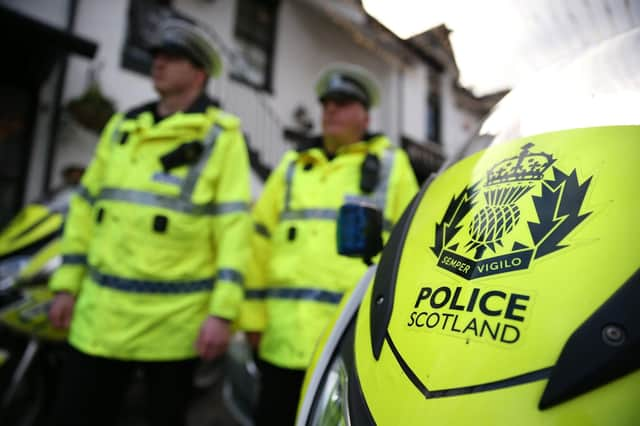Police Scotland 'has already received several hundred complaints' under new hate crime law


Police Scotland has already received “several hundred” complaints under new hate crime laws, it has been reported.
BBC Scotland said some of the complaints were aimed at JK Rowling, who launched an attack on the legislation when it came into force on Monday.
Advertisement
Hide AdAdvertisement
Hide AdThe author challenged the police to arrest her if they believed she had committed an offence.


Prime Minister Rishi Sunak, meanwhile, has accused the Scottish Government of pursuing the “wrong priorities”.
He said: "We are not going to do anything like that here in England. We should not be criminalising people saying common sense things about biological sex.
"Clearly, that isn’t right. We have a proud tradition of free speech, and I think it just shows, whether it’s the SNP or Labour, these are the wrong set of priorities for the country.”
In a series of posts on social media, Rowling listed a number of transgender women, including violent criminals and activists, and insisted “every last one” is a man.
She said: “Freedom of speech and belief are at an end in Scotland if the accurate description of biological sex is deemed criminal.
"I'm currently out of the country, but if what I've written here qualifies as an offence under the terms of the new Act, I look forward to being arrested when I return to the birthplace of the Scottish Enlightenment.”
It came after Scotland’s minister for victims and community safety, Siobhian Brown, said people “could be investigated” for misgendering someone online under the new law.
Advertisement
Hide AdAdvertisement
Hide AdIn an unexpected intervention, Rangers legend Ally McCoist criticised the legislation as “madness”. He told TalkSport: “We’ve got a hate bill, by the way. A hate bill has been passed in the country. And I can guarantee you, next Sunday at Ibrox, I, along with 48,000 will be committing a breach of that hate bill in the particular Rangers vs Celtic game we are all going to. It is madness.”
It is not clear what aspect of the law he thought would be breached.
The Scotsman previously asked Police Scotland for the number of hate crime reports it had received on the day the legislation came into force. It said this information was “being collated and will be published when available”.
The Hate Crime and Public Order (Scotland) Act came into effect on Monday, consolidating existing hate crime legislation and creating a new offence of stirring up hatred against protected characteristics, including age, sexual orientation and transgender identity.
A stirring-up offence on the basis of race has been on the statute book in Scotland since 1986, but the new legislation has sparked concerns about a potential chilling effect on free speech. The Association of Scottish Police Superintendents (ASPS) has also warned of the risk of vexatious complaints.
Women have not been given protection under the law, with the Scottish Government instead promising to bring forward legislation to tackle misogyny.
Humza Yousaf, the First Minister, previously insisted he is “very proud” of the new laws, saying they will help protect against a “rising tide” of hatred. He also said he is “very confident in Police Scotland’s ability” to implement the legislation.
Neil Gray, the Scottish health secretary, said there had been “quite a bit of misinformation around what this legislation actually does, the protections that it extends”.
Advertisement
Hide AdAdvertisement
Hide AdSpeaking on the BBC’s Good Morning Scotland programme, he said it “merely extends” protections around stirring up racial hatred to other groups and there are protections for freedom of expression. Stirring-up offences require people to have used “threatening or abusive language”, Mr Gray said.
Comments
Want to join the conversation? Please or to comment on this article.
